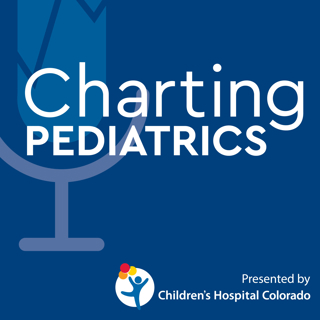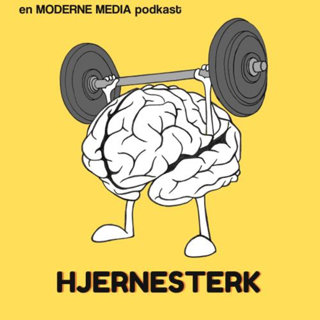
ADHD Medication Management (S1:E15 Rebroadcast)
In this episode we discuss attention-deficit/hyperactive disorder (ADHD) medication management with Marissa Schiel, MD. Dr. Schiel is the Medical Director of the Outpatient Psychiatry Program at Children's Colorado and an assistant professor of child psychiatry at the University of Colorado School of Medicine. Also joining us is Danielle Stutzman, R.Ph., a clinical pharmacist at Children's Colorado with a special interest in psychiatry medication. In this episode: The importance of getting a detailed history when assessing a child for ADHD Understanding the spectrum of ADHD symptoms and how they affect a child's function How to approach the medication management conversation when it comes to ADHD The most common side effects that are associated with stimulants or psychotropic medication Management strategies for dealing with potential medication side effects The importance of screening a child for cardiac concerns before prescribing stimulant medications Understanding the functional benefits of the two different classes of stimulants The ideal target doses for specific ADHD medications A recommended follow-up regime and titration strategy for patients How to counsel families on medication management as the child ages Medication recommendations to consider when trialing the non-stimulant class Techniques to use in therapeutic relationships with ADHD patients
19 Jun 201825min

Vaccinations and Motivational Interviewing (S1:E12 Rebroadcast)
In this episode, Sean O'Leary, MD, discusses vaccine safety and hesitancy from parents. He also suggests motivational interviewing techniques to use when talking with your patients and families. Dr. O'Leary is a pediatric infectious disease specialist at Children's Colorado and associate professor pediatrics and infectious diseases at the University of Colorado School of Medicine. In this episode: How to help families identify the good information from misinformation regarding vaccines The prevalence of vaccine resistance Effectively and efficiently delivering vaccines information to parents Using motivational interviewing techniques when talking with parents about vaccines How to pivot the conversation when a parent is resistant to a care plan Why asking permission is a key component to motivational interviewing Understanding the differences between a recommended and alternate vaccine schedule Techniques for communicating relative risks about vaccines Working with parents who are vaccine resistant Vaccines that receive the most resistance and hesitancy
12 Jun 201821min

Teen Reproductive Health (S1:E6 Rebroadcast)
In this episode, Eliza Buyers, MD, talks about reproductive health in teenagers. Dr. Buyers is a pediatric and adolescent gynecologist at Children's Colorado and a senior instructor of obstetrics and gynecology at the University of Colorado School of Medicine. In this episode: How to talk to teens and their parents about reproductive health Implementing a universal screening approach in your practice Dealing with push back from parents Setting up one-on-one time with adolescent patients Misconceptions about teens and their reproductive health Long-acting reversible contraceptive (LARC) methods Non-contraceptive benefits of LARC Importance of hormonal therapy Reversing long-term hormonal care and contraception Talking to teens about screening for sexually transmitted diseases When to send a patient to a specialist
5 Jun 201827min

That's a Wrap Season 1 (S1:E34)
This episode is the season one wrap up show; thank you to all of our listeners! In light of this celebratory occasion, we’re going to take a little departure from our regular clinical episodes to reflect on season one and preview what listeners can look forward to in season 2 starting August 7, 2018. Suggestions or feedback? Write to us at chartingpediatrics@childrenscolorado.org
29 Mai 201810min

CAR-T Cellular Therapy for Leukemia (S1:E33)
Joining us today are Terry Fry, MD and Mike Verneris, MD to explore cellular therapy for the treatment of pediatric cancers. Dr. Fry is the Robert and Kathleen Clark Endowed Chair in Pediatric Cancer Therapeutics and Dr. Verneris is the Barton Family Endowed Chair of Bone Marrow Transplant at Children's Colorado. In this episode: A new immunotherapy known as cellular therapy, or specifically the chimeric antigen receptor T cell therapy (CAR-T cell), is bringing hope to pediatric patients with blood cancers. Two breakthrough events in the field of immunotherapy made CART-T cell therapy possible: Checkpoint inhibitors: a concept where agents can "take the brakes" off the immune, unleashing a sort of preexisting immune response against the tumor Adult epithelia cancers For cancers like pediatric tumors, mutations aren't present or aren't present at high enough levels for checkpoint inhibitors to work. CAR-T cell therapy is different from checkpoint inhibitors in that the immune system, the T cells, are taken and essentially educated in a different way. The T cells are redirected so they can see the tumors that they weren’t naturally developed to see. The FDA labor indication is refractory leukemia at the time of diagnosis, relapse or second relapse. There is a 70 to 90% complete remission induction rate in phase one CAR-T therapy clinical trials in patients who had estimated durations of survival of only weeks to months. The CAR-T cell approach may be considered an alternative to chemotherapy. Side effects of CAR-T cell therapy include: Patients become neutropenic, have low counts and are at risk for bacterial infection (because chemotherapy is given before cells are infused) Cytokine release syndrome Transient neurotoxicity, ranging from subtle neurologic changes to severe side effects like seizures or even coma Because of leukemic resistance, half of patients that go into remission will relapse by year, in spite of a successful CAR-T cell treatment upfront. The pros and cons of a bone marrow transplant (BMT) versus CAR-T cell therapy are: BMT patients get mild oblation, likely face sterility, late complications, secondary malignancies and more. With CAR-T cells, patients get a single infusion and risk about a month of significant toxicity, but side effects are mitigated after that. The only long-term side effect is potentially a lack of b-cells.
22 Mai 201827min

Nocturnal Enuresis and Bedwetting (S1:E32)
In this episode, we discuss the management of and treatments for nocturnal enuresis, nighttime bedwetting. Joining us is pediatric urology nurse practitioner, Marguerite Korber, NP, who runs many of the enuresis clinics at Children's Colorado. In this episode: At age 5, the primary care physician should make a formal diagnosis of nighttime wetting and give the family a proactive, therapeutic treatment plan. It's recommended that families come to a urology specialist or enuresis clinic around age 7 The reasons for bedwetting may differ according to whether patient has primary or secondary nocturnal enuresis. Before making a referral to urology, primary care physicians can perform an initial workup, evaluating: If the child is ready to become potty-trained and, therefore, dry at night Functional bladder capacity to see if nocturnal enuresis has anything to do with diabetes or UTI concerns If their bladder is releasing earlier than it should and/or doesn't have the appropriate, expected capacity Despite the parents' frustration, until the child is affected by their nighttime bedwetting, initiating them to be responsible for some of their behavioral modifications during the day will be difficult. The important aspects to focus on in a physical exam are the abdominal exam, lumbar spine evaluation, neurologic evaluation and urethral opening evaluation. Constipation plays a large role in nocturnal enuresis. The abdominal exam will tell you whether or not constipation is a contributing factor, specifically in that descending colon. "If you can palpate stool, then you know that it's probably sitting in the rectum as well." The urethral opening tends to be more of an issue for boys specifically. Bedwetting enuresis management options include behavioral therapy, fluid shifting and addressing constipation. How to effectively implement the use of alarm therapy as a bedtime wetting management option – and what parents need to know up front. What criteria allows for using Desmopressin, a DDAVP, as the right option when pursuing pharmacologic therapy Options for managing chronic nocturnal enuresis: By changing any dysfunctional voiding components to their day time habits, patients will be better prepared for the natural progression of the night time to occur. Providers need to provide alternative treatments for patients when cost is a barrier to care, such as with a bed alarm. Pull-ups can be a cost effective solution to involuntary nighttime bed wetting. Oftentimes with nocturnal enuresis, it's necessary to treat the whole family, helping parents to manage their frustration.
17 Mai 201820min

Neck Mass Diagnosis and Management for Pediatricians (S1:E31)
On today's episode, we're discussing the diagnosis and management of neck masses in children. Joining us is Melissa Scholes, MD, Director of the Pediatric Balance and Vestibular Disorders Clinic at Children's Colorado. In this episode: Common presentations of neck masses in children The questions pediatricians should be asking when they encounter a neck mass The various locations and types of neck masses that can be found How to evaluate and address the consistency of a neck mass What information in the child's history is particularly important to look at The increase in head and neck malignancies in children today Possible lab tests and imaging for neck masses in children When pediatricians should send children to an ENT clinic Antibiotics and treatments to consider for infectious neck masses Infectious lymph nodes and the possibilities of them going viral
8 Mai 201816min

Common Sleep Disorders in Children and Teens (S1:E30)
Joining us is Ricky Mohon, MD, to discuss the most common sleep disorders and sleep issues affecting pediatric and adolescent patients. Dr. Mohon is Medical Director of Sleep Medicine and Program Director of Pediatric Pulmonology here at Children's Colorado, as well as a professor of pediatrics at CU Medicine. In this episode: The prevalence of sleep disorders in children and how these issues have evolved Answering "How much sleep should my child be getting?" How to counsel family members on their teenager's sleep needs The disruptive impact electronic devices have on children's sleep patterns The most common sleep disorders Dr. Mohon sees in infants, children and adolescents Whose responsibility is it to change the diaper in the middle of the night? Behavioral changes that parents can make to limit continuous night calls The full extinction technique: How and why parents should let baby learn to self-soothe Managing sleep-related breathing disorders and snoring in children The process of conducting pediatric sleep studies and what sleep specialists monitor The effects of sleep apnea and insomnia on a child’s health and school life
1 Mai 201822min




















